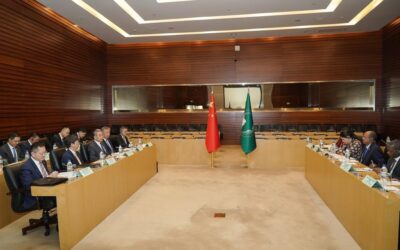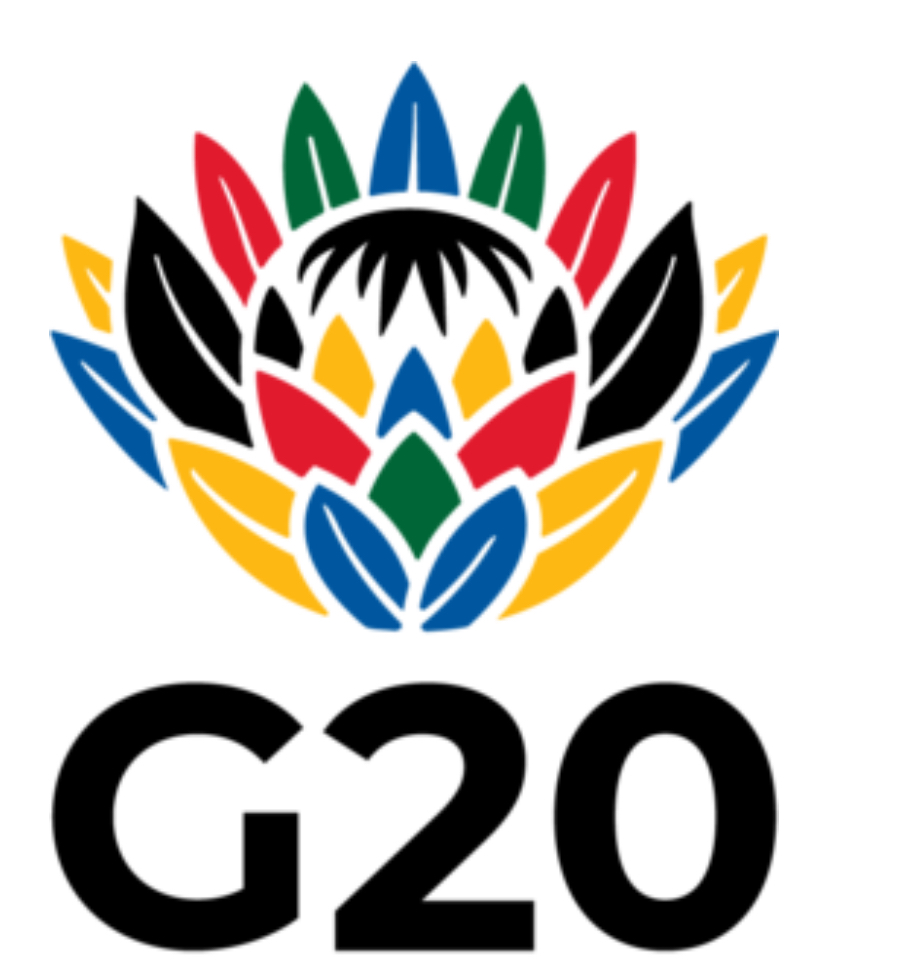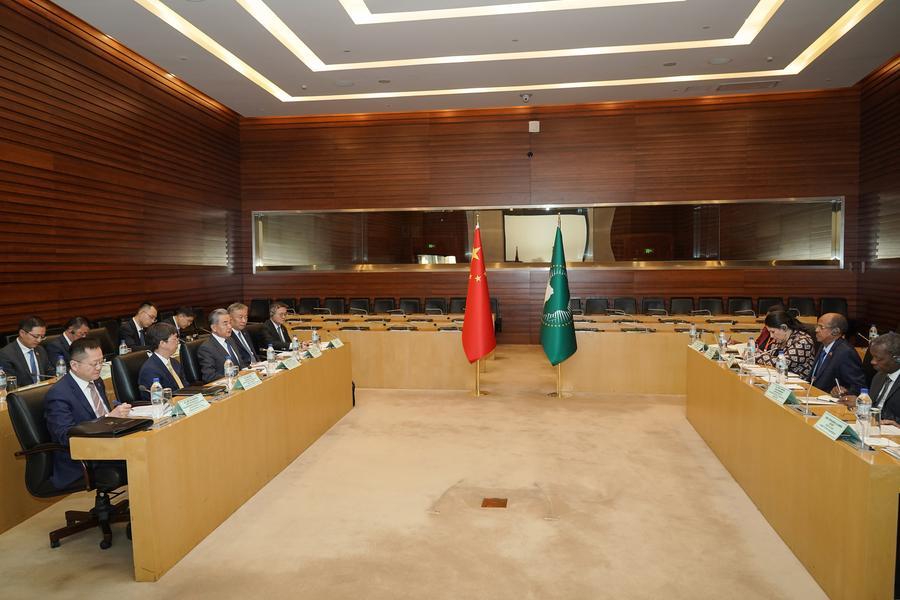By staff writer
The G20 Summit will for the first time take place on the African continent specifically in South Africa in late November. This marks a pivotal moment in global governance and international diplomacy. Bringing the world’s major economies to African soil represents a deliberate shift in global power dynamics, giving Africa and the broader Global South a stronger platform to shape international priorities. South Africa, as host, emphasizes themes such as solidarity, equality, and sustainability, pushing the world to confront long-standing issues including climate finance, debt relief, and structural reforms to multilateral institutions.
For Africa, the opportunity lies not only in influencing the agenda but also in the economic and reputational benefits that accompany the summit. Tourism, hospitality, and business sectors receive a boost, and South Africa gains visibility as both a political and economic leader on the continent. The presence of global leaders, CEOs, and institutions creates avenues for investment, trade agreements, and long-term partnerships that can outlast the summit itself.
President Xi Jinping’s remarks at earlier G20 gatherings offer useful insight into how major powers frame their engagement with developing nations. Xi has consistently highlighted the need for a fairer global governance system—one that recognizes the aspirations and challenges of the Global South. He has advocated a world order where development is shared, institutions are reformed to reflect new global realities, and the economic playing field is less distorted by unilateral sanctions, protectionism, or geopolitical rivalries. His proposals included support for infrastructure development, expanded scientific and technological cooperation, and new funding commitments aimed at poverty reduction, food security, and green development. Xi’s emphasis on digital cooperation, especially in areas like artificial intelligence, reinforces his argument that technological progress should not become a privilege reserved for wealthy countries.
For Africa and other developing regions, such commitments signal potential avenues for investment, capacity building, and greater inclusion in cutting-edge global innovation.
At the same time, Xi has repeatedly warned against forms of protectionism adopted by wealthier nations, particularly when justified under environmental or technological pretexts. His call to restore the World Trade Organization’s dispute settlement mechanism and advance negotiations on digital trade reflects the concerns of many Global South nations that feel excluded or disadvantaged by current trade rules. In this context, China presents itself as a partner aligned with developing countries’ interests, supporting reforms that could give these nations greater influence in global decision-making. For African states, such rhetoric is appealing because it resonates with long-standing frustrations: limited voice in global institutions, inequitable financing terms, and global rules shaped disproportionately by wealthy Western states.
However, the question remains whether the G20 can truly provide a level playing field. The group brings together both rich and poor nations, but it is far from egalitarian. Wealthier nations wield greater influence due to their economic weight, control of global financial systems, and geopolitical leverage. Even though the African Union has gained full membership in the G20, a milestone in itself, institutional inequality persists. Trade structures are still shaped by unequal access and subtle protectionism; global security is dominated by powerful states; and the international order continues to reflect power imbalances rooted in decades of political and economic dominance.
Yet Africa’s hosting of the G20 is a step toward challenging these imbalances. By bringing discussions to African soil, situating African priorities at the heart of the global agenda, and leveraging alliances with partners like China, Africa strengthens its voice in multilateral diplomacy. The summit will not by itself level the global playing field, but it creates momentum toward a more inclusive international system—one where developing nations have greater agency, visibility, and influence over the decisions that shape their futures.








Guys, the jiliwinapplogin process is smooth as silk! No hassle at all. Makes it easy to jump in and play. Sulit!
Die eingezahlten Beträge sind unseren 20bet Casino Erfahrungen zwischen sofort über wenigen Minuten oder einigen Werktagen verfügbar.
Das 20bet Casino zeigt einmal mehr, dass es sich um einen seriösen Anbieter handelt.
Die Spielercommunity dankt es 20bet und wächst unseren Erfahrungen nach weiter.
20bet zeigt einmal mehr, dass es gelingen kann sich nicht nur auf die etablierten, sondern auf die Newcomer
zu konzentrieren. Darunter finden sich Branchengrößen, wie Pragmatic Play,
BigTimeGaming, Wazdan oder Netent in Hülle und Fülle.
Über die einfache Suchfunktion können die Spiele nach Namen gesucht und direkt gespielt werden.
Mit insgesamt mehr als 30 Möglichkeiten für eine Einzahlung, wird
hier jeder Spieler eine Methode finden, die seinen Vorstellungen entspricht.
Spieler können eine Mindesteinzahlung schon ab 0,10 €
vornehmen, was besonders für Spieler mit kleinem Budget
interessant sein dürfte. Zu den beliebtesten Spielen im Live-Casino zählen Klassiker wie Poker, Roulette
oder Bakkarat, aber auch sogenannte Social Games und Gemeinschaftsspiele sind sehr beliebt.
Wählen Sie einfach einen Anbieter über die Navigation aus und entdecken Sie das
gesamte Spielangebot. Aus diesem Grund finden Sie bei 20Bet
eine riesige Auswahl an Spielautomaten von renommierten Anbietern wie Netent,
Microgaming oder Betsoft.
Das Supportteam von 20Bet bietet einen ausgezeichneten Support in Englisch und vielen weiteren Sprachen. Die schnellste
Antwort erhalten Sie aber per Live-Chat, welcher Ihnen bereits in wenigen Minuten eine verlässliche Antwort liefert.
Sie können den Kundensupport zum Beispiel per E-Mail unter oder über das Kontaktformular auf der Webseite
erreichen. In den Kontoeinstellungen finden Sie ein Formular, um schnell die angeforderten Bilder hochzuladen.
References:
https://online-spielhallen.de/tipico-casino-aktionscode-ihr-weg-zu-exklusiven-vorteilen/
Navigation is intuitive, making it easy for newcomers to quickly
acclimate and for seasoned gamers to dive straight into the action. If you feel like you’re spending
too much time or money, you can set deposit limits, take a break,
or self-exclude. Just make sure to check the wagering terms
before you start — they’re clearly explained on the promotions
page. Traditional options like bank cards may take between 1
to 3 business days. Royal Reels is fully optimised for mobile use
on both Android and iOS devices.
Located digitally at royalreels.mobi, it offers players unrivaled access to some of the most exciting gaming options and promotional offerings in the world.
Royal Reels Casino provides a seamless mobile gaming experience through its mobile-optimized
website, allowing you to access all your favorite games without needing an app download.
Royal Reels Casino offers a variety of payment methods including Visa, MasterCard, PayPal,
Skrill, Neteller, Bitcoin, and Ethereum to facilitate smooth and secure transactions
for all players. Each method is aligned with security and convenience, ensuring players can process deposits
and withdrawals effectively.
Premier Australian casino with exclusive pokies and generous bonuses Discover the ultimate gaming hub for
Australian players. The user-friendly interface, responsive customer support, and attractive bonuses
further enhance the overall appeal of the
casino. The live chat feature allows for instant communication with a
support representative, providing real-time solutions to player concerns.
The availability of these diverse communication channels ensures that players can have their questions resolved
swiftly and efficiently, enhancing their overall satisfaction with the casino’s services.
Players can easily reach out to Royal Reels Casino through multiple
customer support options, including a comprehensive FAQ section that
addresses common queries and concerns, ensuring a seamless and efficient communication experience.
References:
https://blackcoin.co/online-casino-welcome-bonuses-a-comprehensive-guide/
RocketPlay Casino Australia ensures that players can quickly access everything they need, from games to promotions.
Whether you’re into slots, table games, or live dealers, RocketPlay Australia has
something for everyone. Rocketplay encourages all
players to treat gambling as a game, not as a financial solution.
Beyond pokies, the casino offers traditional table games such as blackjack, roulette,
baccarat, and poker. Visitors are encouraged to play by the
platform, and several reviews of RocketPlay casinos by actual players have mentioned how amazing the deals are.
Initially, the player visits the casino to play a variety of games
rather than to make money. One of the greatestgaming websites that accepts bitcoin payments
is Online Rocket Casino.Bitcoin and other currencies allow Australians to play their favoritegames.
The mobile platform maintains the same high-quality graphics and
smooth gameplay that desktop users enjoy, with no compromise in performance or features.
Players earn points through regular gameplay, which can be redeemed for cashback, exclusive bonuses, and special privileges.
Is known for holding operators accountable and resolving player complaints quickly.
This license guarantees fair play, strict security,
and strong player protection. You can experiment with different DraftKings Rocket game strategies, such as low multiplier betting, auto mode parameters, or timing your manual cashouts to maximize payouts.
References:
https://blackcoin.co/playzilla-your-ultimate-pokies-destination-in-2025/
online real casino paypal
References:
https://mixclassified.com/user/profile/1039906
online casino for us players paypal
References:
https://spechrom.com
Some times its a pain in the ass to read what website owners wrote but this internet site is very user friendly! .
Just what I was looking for, appreciate it for posting.
very good post, i certainly love this web site, keep on it